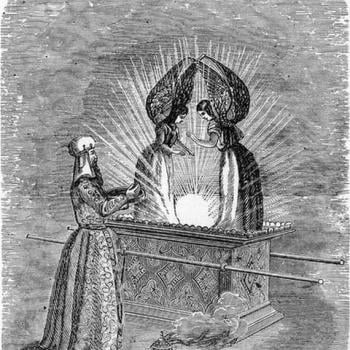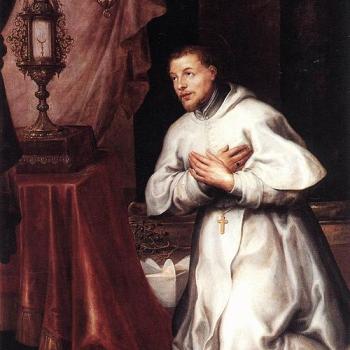Science multiplies the mysteries without ever being able to satisfy the longing for sure truth. As Thomas Kuhn pointed out in The Structure of Scientific Revolutions, science itself creates and discards truths as it asks new questions and constructs new answers. Newtonian physics were real and true and reliable for generations of research; they answered key questions about the universe and its operations. And then, with the onset of quantum physics, they were no longer true or reliable, and did not answer the questions scientists were asking.
The temporal nature of scientific truth is pivotal for any healthy relationship between science and religion. As Blondel wrote: "Science knows what it knows and does not know what it does not know . . ." The same could be said of faith. The real difference between the two quests, according to many turn-of-the-century thinkers, should be found in their ultimate goals.
Key scientists of Blondel's generation -- including Henri Poincare and Ernst Mach and Pierre Duhem -- agreed that scientific laws were human-generated abstractions of accumulated facts, not actual truths. The purpose of the sciences is not to penetrate the essence of anything but to create a system of coherent relations between things.
The purpose of faith, however, is to participate in a relationship between persons -- one human, one divine -- a relationship defined not by theory or dogma, but by choice and action like any other relationship. Blondel's understanding of the intersection of scientific truths and spiritual questions zeroed in on personal will and destiny. "Proof" -- religious or scientific -- is inevitably elusive and uncertain. God cannot be proved. God cannot be disproved. Many viable scientific theories today are in the same position. Even evolution has not been "proved." The evidence is overwhelming, and the theory holds true in multiple avenues of inquiry, but it remains a theory. Workable. Probably close to the way it really happened. But not "factual."
The absence of proof -- in both spiritual and scientific arenas -- is not a negative, but a positive situation. It makes room for the new questions, the exploration, the quest.
And yet, as the 17th century scientist, philosopher, and Christian thinker, Blaise Pascal, wrote, we must still choose our destiny. Without proof. And therein lie both the agony and the genuine possibility of "ecstasy," which means the ability to stand outside the self. Each individual must choose, and choice alone makes the difference between a Richard Dawkins and a Francis Collins.
The reasons for Dawkins' rejection of the possibility of God and Collins' embrace of it come from within, not from the data in a lab. Pascal, the scientist and man of faith, knew it as the Deus absconditus, the hidden God: "Thus wishing to appear openly to those who seek him with all their heart and hidden from those who shun him with all their heart, he has qualified our knowledge of him by giving signs which can be seen by those who seek him and not by those who do not. There is enough light for those who desire only to see, and enough darkness for those of a contrary disposition."
Human origin and human destiny are a matter of conviction. And conviction is a choice we make in the convergence of scientific discoveries, records of revelation, and the desires of the heart.




